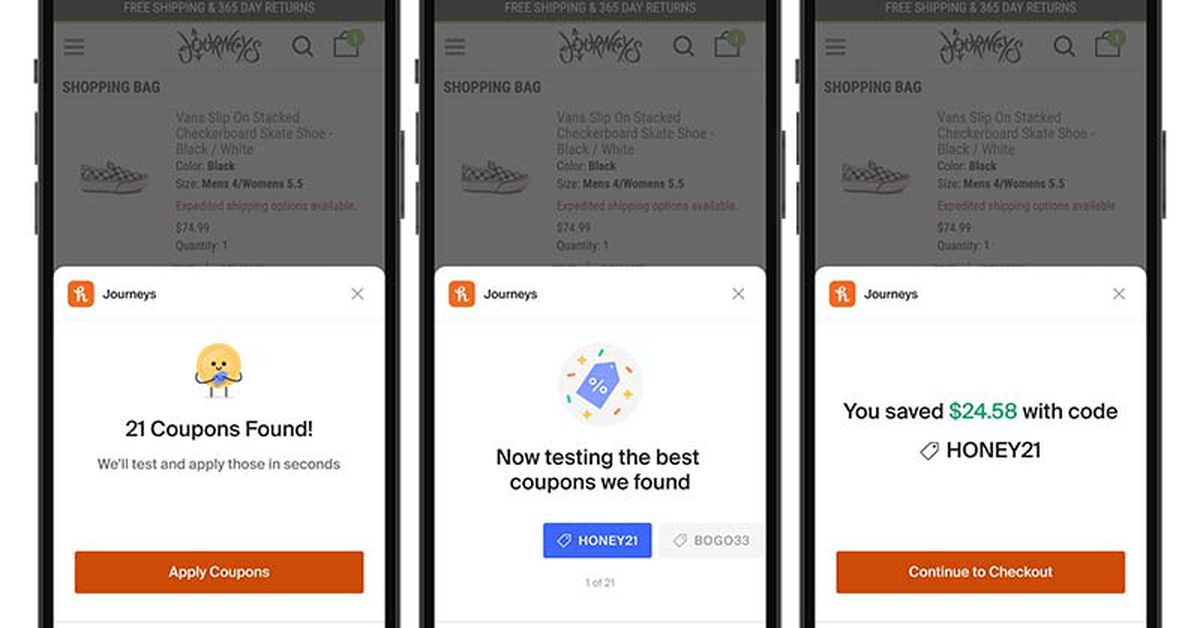PayPal Honey Browser Extension: Scam or Savior?
The PayPal Honey browser extension has been touted as a handy way to find better deals on products while shopping online. However, in a recent video published by YouTuber MegaLag, the extension is claimed to be a ‘scam’ and that Honey has been ‘stealing money from influencers, including the very ones they paid to promote their product.’
How PayPal Honey Works
Honey works by popping up an offer to find coupon codes for you while you’re checking out in an online shop. On its website, Honey’s pitch is that it will ‘find every working promo code on the internet.’ However, according to MegaLag’s video, this may not always be the case.
The Issue with Honey
MegaLag notes that Honey frequently fails to find a code, or offers a Honey-branded one, even if a simple internet search will cover something better. This raises questions about the effectiveness of the extension and whether it is actually helping users save money.
Partnerships with Retail Clients
According to MegaLag’s video, ignoring better deals is a feature of Honey’s partnerships with its retail clients. This means that even if you find a better deal elsewhere, Honey may still offer its own code, potentially resulting in you missing out on the best savings.
Affiliate Revenue Hijacking
MegaLag also claims that Honey will hijack affiliate revenue from influencers. According to MegaLag, if you click on an affiliate link from an influencer, Honey will then swap in its own tracking link when you interact with its deal pop-up at check-out. This means that instead of the YouTuber or website whose link led you there getting the credit for the sale, Honey gets the credit.
PayPal’s Response
In response to MegaLag’s claims, PayPal VP of corporate communications Josh Criscoe said in an email to The Verge that ‘Honey follows industry rules and practices, including last-click attribution.’ Last-click attribution means that the affiliate who is credited with the sale is determined by the last click a customer makes before making a purchase.
Other Concerns
MegaLag’s claims are not the first of their kind. A 2021 Twitter post advises using Honey’s discount codes in a different browser to avoid it taking the affiliate credit. Additionally, a Linus Media Group employee explained in a 2022 forum reply that Linus Tech Tips dropped Honey as a sponsor over its affiliate link practices.
The Impact
Honey’s convenience has resulted in the extension being recommended widely, including in almost 5,000 Honey-sponsored videos across about 1,000 YouTube channels, according to MegaLag. We’ve even recommended it here at The Verge; now we do not.
Conclusion
While PayPal Honey may seem like a convenient way to find deals online, the claims made by MegaLag raise serious concerns about the effectiveness and fairness of the extension. Whether or not you agree with MegaLag’s conclusions, it is clear that there are issues with how Honey operates. As consumers, we need to be aware of these potential problems and make informed decisions when using browser extensions like PayPal Honey.
What Users Should Know
- Honey may not always find the best deals for you.
- Honey may prioritize its own codes over others, potentially resulting in you missing out on better savings.
- Honey may hijack affiliate revenue from influencers.
- Using a different browser to access Honey’s discount codes can help avoid affiliate credit issues.
Alternatives to PayPal Honey
If you’re concerned about the potential issues with PayPal Honey, there are alternative browser extensions that can help you find deals online. Some options include:
- RetailMeNot: A popular browser extension that offers coupon codes and cash back rewards.
- ** Coupons.com**: A website and browser extension that aggregates coupon codes from various retailers.
- Honey’s competitors: Other browser extensions like RetailMeNot, Coupons.com, or Slickdeals may offer similar features to Honey.
Recommendations
Based on the concerns raised by MegaLag, we recommend exercising caution when using PayPal Honey. While it may seem convenient, it’s essential to be aware of its potential limitations and issues. Consider exploring alternative browser extensions that can help you find deals online.



